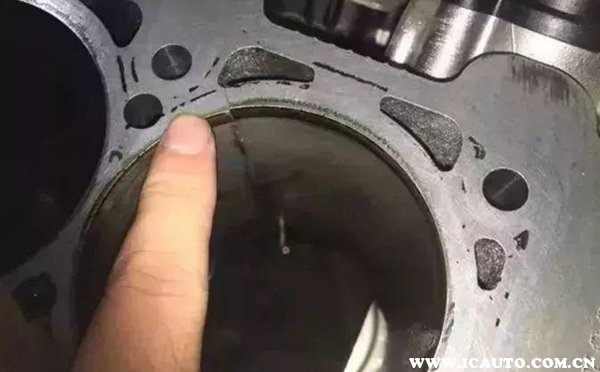In many areas, the temperature is very low in winter, and many car owners have experienced the embarrassment of the engine being frozen and cracked. This situation mostly occurs when the cold engine is started.
Do you know that the engine freezes and cracks to a few degrees below zero?
Engine freezing and cracking are generally common below minus ten degrees, but not when the temperature reaches below -10, the engine block will freeze and crack.
Two conditions are required for engine freezing and cracking, one is cold start, and the other is no antifreeze or insufficient antifreeze.
The reason why the engine freezes and cracks is because the volume of the antifreeze fluid expands when it freezes in the pipeline, which causes the radiator to expand and crack and freeze the engine cylinder block or cylinder head. At the same time, when the cold engine is started, the refrigerant in the engine cannot circulate in the pipe to dissipate heat due to icing, which can easily cause damage to the engine.
How to repair engine freezing and cracking? Discuss this problem by sub-components and materials.
First, let's talk about the common materials of the cylinder block. Automobile cylinders are generally divided into cast iron and cast aluminum. Cast iron cylinders can be repaired. Small cracks are generally welded to death by welding rods and the cylinder wall can be smoothed. If the cylinder body is cast aluminum, it can only be replaced as a whole, and cast aluminum cannot be repaired.
There are two parts of the engine that are prone to freezing and cracking, one is the cylinder block and the other is the cylinder head.
The cast iron cylinder block can be repaired, but the cylinder head cannot be repaired by welding, no matter what material it is, it can only be replaced with new parts. Because the cylinder head is mainly used for sealing, the welding strength after freezing and cracking is far from reaching the original standard.
How to prevent the engine from being frozen and cracked?
1. Replace the high-quality antifreeze while keeping the liquid level at the standard position. For areas where the temperature is very low in winter, pure water must not be used as a coolant, and a special car coolant should be used. The freezing point of the car coolant is below -60 degrees, which can be applied to most scenes;
2. If pure water is used as the antifreeze, then after the flame is turned off, the antifreeze outlet should be opened to drain all the water, and then fill with warm water when using it;
3. Park the vehicle in the underground garage. The temperature of the underground road is generally high, and the antifreeze is not easy to freeze.
